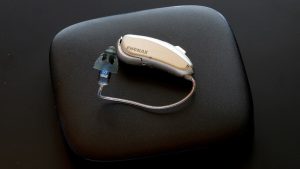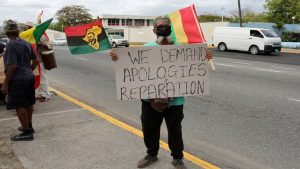I remember being swept up in the crowds in Trafalgar Square in July 2005.
Nelson Mandela assumed the podium to roaring applause to deliver his powerful Make Poverty History speech.
The atmosphere was surreal and around 22,000 people came together to march as a collective to end the burden of poverty.
At that point, ONE Campaign did not exist and little did I know that over a decade later I would be at the helm leading the cause.
ONE stands together with citizens at the centre of this poverty apocalypse, demanding accountability from African leaders in the hope of experiencing the freedom promised.
To this day, I can still hear Mandela saying, “In this new century, millions of people in the world’s poorest countries remain imprisoned, enslaved and in chains. They are trapped in prison of poverty. It is time to set them free.”
Thirteen years later, Africa has failed in attaining the dream that Mandela hoped for.
Sub-Saharan Africa has the highest prevalence of undernourishment in the world with 224 million people suffering from it.
Africa’s people are starving at a rapid rate, while more than $50 billion leaks out of the continent each year in illicit financial flows.
This is a huge amount that shows how anti-corruption systems in Africa have failed dismally.
The African Union’s Convention on Preventing and Combating Corruption, adopted in 2003, outlines a robust set of principles including rooting out corruption, strengthening democratic principles, institutions, and the rule of law while increasing transparency and accountability in the management of public affairs.
Yet implementation of the Convention’s principles has been uneven and inadequate across the continent.
As we observe Nelson Mandela’s Centenary and build on his legacy, we repeat his call for leaders to act.
“I say to all those leaders: do not look the other way; do not hesitate. Recognise that the world is hungry for action, not words. Act with courage and vision,” Nelson Mandela.
Something needs to be done, right now! It’s high time our leaders take cognisance of the troubles of our poor and act with courage to alleviate their burdens. Africa is tired of corrupt officials looting state coffers and lining their pockets, while most of its people suffer. The African Union’s 2018 theme, Winning the Fight Against Corruption: A Sustainable Path to Africa’s Transformation, provides an opportunity to make progress in the fight against corruption and mitigate its corrosive impacts on economic growth, security, and extreme poverty.
The AU’s focus on combating corruption comes at a critical juncture when corruption among government officials and bureaucracies have increased over the last decade, according to the Ibrahim Index of African Governance.
How is this still our reality when over a decade ago Mandela drew attention to the same social evils?
“Massive poverty and obscene inequality and such terrible scourges of our times- times in which the world boats breath-taking advances in science, technology, industry and wealth accumulation- they have to rank alongside slavery and apartheid as social evils,” Nelson Mandela.
The continent’s population is expected to double by 2050, with half the inhabitants under the age of 25.
This generation will need the skills and knowledge to realise the vision of the Africa We Want as set by Agenda 2063.
Without the correct investments by our leaders, we will experience the same colossal burden that has escalated ten-fold.
Africa’s youth can play a crucial role in helping to develop the continent in the years to come so that we may rid ourselves of poverty. Our leaders need to invest in quality education so that our youth are equipped to advance Africa in the digital age and make inroads to end this nightmare. If governments increase domestic budgets for education to reach 5.8% of GDP, the continent will benefit from its younger population. Following which, Africa must create jobs and halve the proportion of young unemployed Africans (aged 15 – 24) from 60% to 30% by 2020.
This prison of poverty will never end unless we all play a small part in making a change. In this regard, ONE has partnered with the Nelson Mandela Foundation to commemorate Mandela’s centenary.
We are committed to playing our part in fulfilling his legacy and extend that challenge to all African leaders. We also call on Africa’s young people to rise above the continent’s current challenges and collectively help make Mandela’s dream a reality by ‘Making Poverty History’.
Fighting corruption will be critical in tackling extreme poverty as Africa is yearning to see tangible outcomes.
The time for words is over. Now is the time to act and show transparency because Africa needs to mitigate the growing impacts of corruption, not only on the economy but also on the marginalised. It is not an easy challenge but as Mandela said on that historic day in Trafalgar Square.
“Sometimes it falls upon a generation to be great. You can be that great generation. Let your greatness blossom. Of course the task will not be easy. But not to do this would be a crime against humanity, against which I ask all humanity now to rise up. Make Poverty History.”
Let’s be that great generation and end this poverty apocalypse.
Author: Rudo Kwaramba-Kayombo






